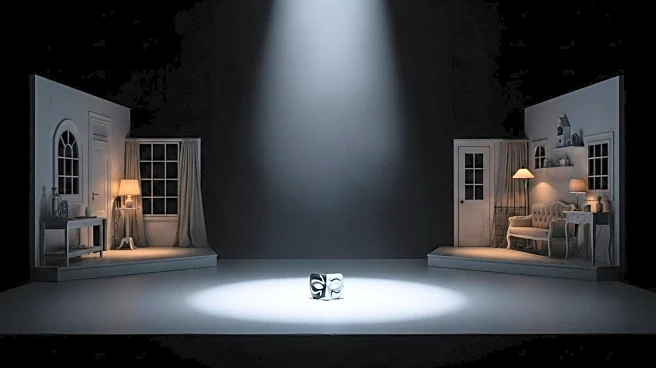What is the story about?
What's Happening?
Steppenwolf Theatre is set to begin its 2025 LookOut series with Tania Richard's solo show 'Black Girl from a White Suburb.' The performance, scheduled for October 3-4, is based on Richard's memoir detailing her experiences growing up in Western Springs, Illinois, as the daughter of Haitian immigrant parents. The show explores Richard's journey through predominantly white environments and her transformative experience in a predominantly Black cast during a production of 'The Song of Jacob Zulu' at Steppenwolf in 1992. Richard's storytelling is described as a political act, aiming to share her lived experiences in a way that encourages understanding and reflection.
Why It's Important?
The LookOut series at Steppenwolf Theatre provides a platform for diverse voices and stories, highlighting the importance of representation in the arts. Tania Richard's show addresses themes of identity, race, and belonging, offering audiences a chance to engage with these critical social issues through personal narrative. By spotlighting Richard's experiences, the series contributes to broader conversations about race and identity in America, potentially fostering greater empathy and understanding among viewers. The series also underscores the role of theater as a medium for social change and personal expression.
What's Next?
Following the opening of the LookOut series with Richard's show, Steppenwolf Theatre will continue to present a variety of performances through November 22. The lineup includes works by Chicago artists such as Tony Fitzpatrick and Maggie Anderson, as well as performances by the chamber musical ensemble D-Composed. These events will explore themes ranging from art and disability to Black theater history and modern masculinity. The series promises to offer audiences a rich tapestry of cultural and artistic experiences, furthering Steppenwolf's mission to showcase diverse voices and stories.
Beyond the Headlines
The LookOut series at Steppenwolf Theatre not only highlights individual stories but also reflects broader cultural and societal shifts. By featuring works that delve into personal and collective identities, the series encourages audiences to consider the complexities of race, culture, and community in contemporary America. This approach aligns with a growing trend in the arts to use storytelling as a means of addressing social issues and fostering dialogue. The series may also inspire other theaters to adopt similar initiatives, promoting inclusivity and diversity in the performing arts.

















